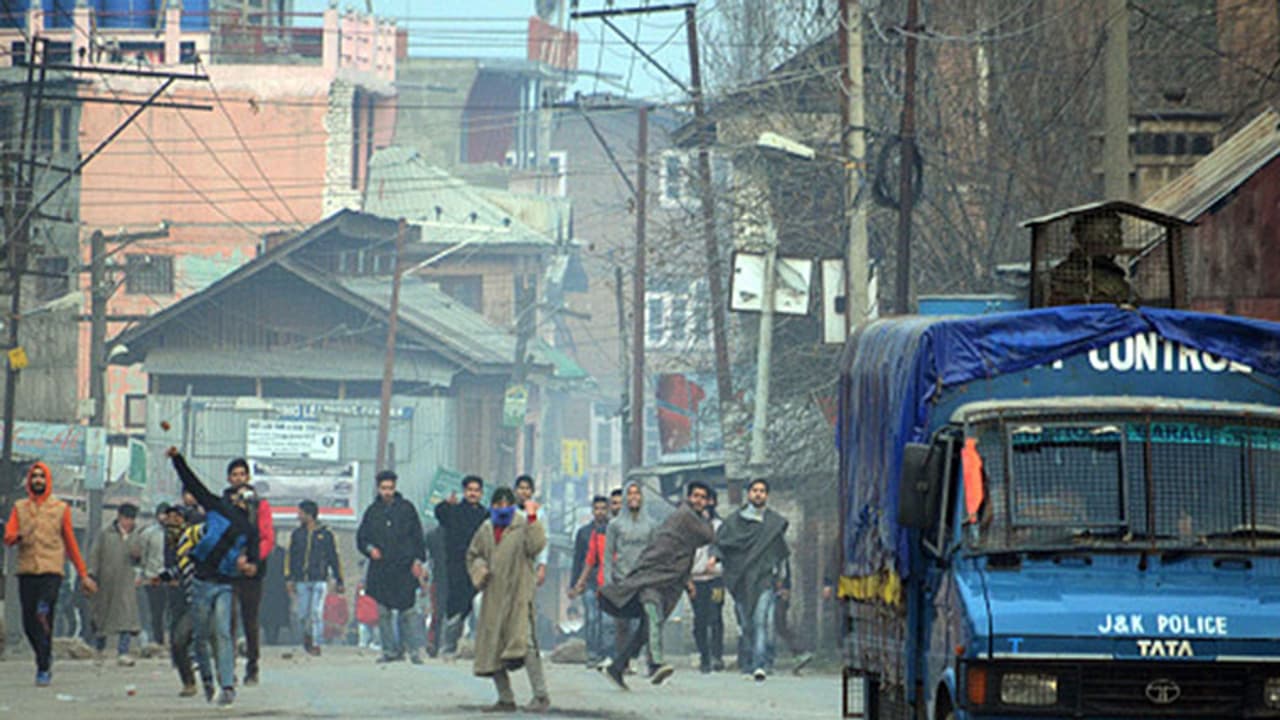Last week after 43 days of uncontrolled anger on the streets of Kashmir when Northern Army Commander Lt. Gen D S Hooda spoke, every stakeholder in the conflict not just listened to what he had to say, but agreed too.

“, put our heads together and see if we can find an end to this. I know it is not easy. The situation is difficult. Everybody who is in any way involved in J&K needs to introspect,” said Hooda.
It wasn't "a political statement," he later clarified.
He pointed: It is a statement of facts because everybody is involved, whether it is security forces, separatists, governments, student leaders, so my appeal is to everyone. I think we need to find some way forward in this.
Within the ranks of the army General Hooda enjoys considerable respect and given the squabbling matches that generals have been playing, he has kept himself above that mess.
But, did he speak with political sanction or was it his personal view?
If I know Hooda well, his statement wasn’t just his opinion but a sincere, honest as well as a strategic way to make sure that the government joins his quest searching for a political consensus.
During the 90s the army always felt that any military gains made in the Valley was always lost to intense civil-military strife because the political leadership refused to move in and begin the process of rebuilding, instead left it to the army to fill in for them.
General Hooda challenged a lot of no-go-zones within and around the Army and raised the bar.
Under the circumstances to admit, as he has been doing is the best policy and ensure that fair trial is given and if found guilty the accused are punished as per law.
The Army for far too long has been enjoying immunity and this impunity has emboldened a lot of soldiers. That is at the heart of the rot that set in and in situations like Kashmir it only contributes to exacerbating the crisis.
In June this year, Hooda told the "Militarily, there's not much more to do than we already have done. ... We're losing the battle for a narrative." This is significant. The political establishment as well as the civil society should swiftly follow up this statement.
When news of the death of the lecturer in army custody came in this August, the General expressed his anguish publicly admitting it was an ‘unauthorised’ operation and that the death by beating was ‘intolerable’ and ‘unjustified’.
Over the last two years General Hooda as Northern Army Commander was sharp and straight and that is why there is resonance when he states even the most obvious.
In April this year, when civilians were killed in after protestors stormed an army post, Hooda called the incident "highly regrettable" and offered to take care of all hospital expenses and rehabilitation of the injured.
In 2014, he wrote to his troops after the Uri attack highlighting a “nuanced approach”:
", which balances local aspirations with controlling terrorist violence, is to be adopted. While in theory this aspect is largely understood, its application on ground needs further refinement. Conduct/prosecution of ops needs to change in sync with the environment prevailing.Unfortunately, our metrics for determining success in CI ops have not kept pace with the changing environment, and this too has contributed to some confusion in our minds."
I will request all GsOC to focus on training and education of officers and men to drive home the circumstances and the conditions in which we operate and our code of conduct. I can't be too specific as each unit has its own distinct area and requirements, but you all are senior and experienced enough to know and adopt the correct approach."
In 2015, he as the Army Commander confirmed the life term conviction of 6 army personnel including a former commanding officer in the Machil encounter case where three young people were killed by the army.
There were murmurs within the forces that it will demoralise the soldiers but he stuck to his gun and in fact questioned the other senior officers in the chain.
He said the murders couldn’t have taken place without the knowledge of the higher ups.
Even as the GoC 57 Mountain Division in Manipur, Hooda had made it clear that he won’t accept headcounts as a marker of performance.
True, he rose in a system where promotions are inextricably linked to a dirty war but he, as the leader, didn’t encourage false encounters.
It is close to 50 days since the last wave of violence erupted in the Valley. It is unfortunate that it takes an Army Commander in a civilian government to own up, speak out and appeal to all sections. Indeed it is time to introspect not just about the crisis but why others have lost the ability as well as credibility to gain salience.
Kishalay Bhattacharjee is a senior journalist and author. His most recent book is Blood on my Hands: Confessions of Staged Encounters (Harper Collins 2015). The views expressed here are his own.
